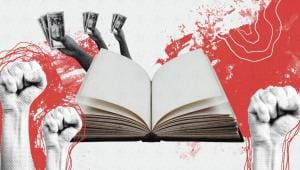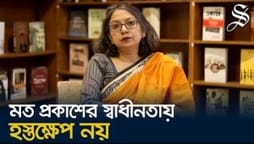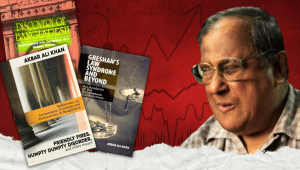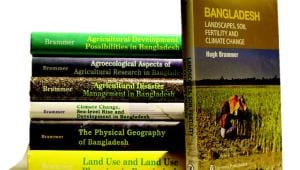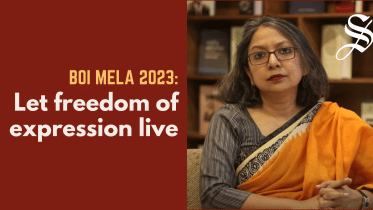What shapes the language and direction of successful movements?
My father used to tell a story about the book-buying behaviour of the nouveau riche from a certain region of the world. I don’t know how much of this is a reflection of reality, but here’s how it goes: a super-rich trader comes into a bookshop to order books for his drawing room cum library. He looks around the shop and then orders the bookseller to give him 100 yards of green books, 80 yards of red books, 60 yards of yellow… so on and so forth. He needs to fill the space of the few metres-long mahogany shelves built in his palace with colours of his choice—trying to get urban, modern, and earn some prestige.
17 October 2024, 09:53 AM
It is time to reform the publishing sector
In the past regime, there was investment in books that only served a certain coterie, championing a certain narrative.
31 August 2024, 05:54 AM
Choose books, not bans
Even if one does find the content of a certain book or the opinions of its author to be agreeable, it is unfortunate for that book to be altogether banned from having a place at the book fair.
3 February 2023, 18:00 PM
Akbar Ali Khan: the “Learned” and self-critical scholar
He intended to break down the jargon of economics, history, politics, and the theories behind it and make them palatable to the everyday readers. He inspired people to take part in shaping the tools and mechanisms that drive the governance of the state.
14 September 2022, 18:00 PM
Boi Mela begins. Are publishers prepared?
First, the government authorities are always behind in planning and leave things for the last minute to reach concrete decisions, and often, these decisions don’t take into consideration pragmatic solutions that are sustainable and maintainable in the long term.
16 February 2022, 18:00 PM
Hugh Brammer: Remembering an exemplary geographer
Hugh Brammer was unique in many ways.
29 January 2021, 18:00 PM
